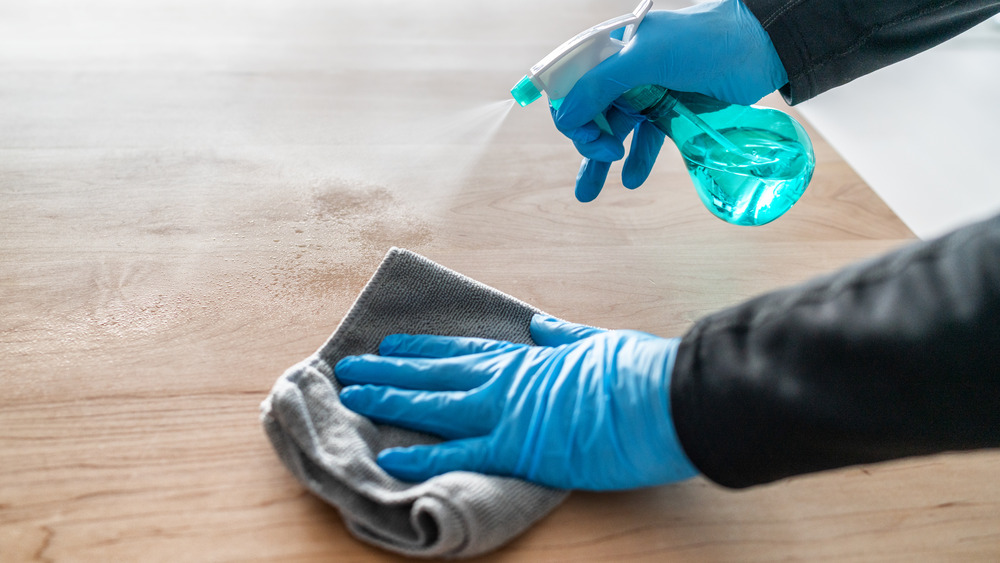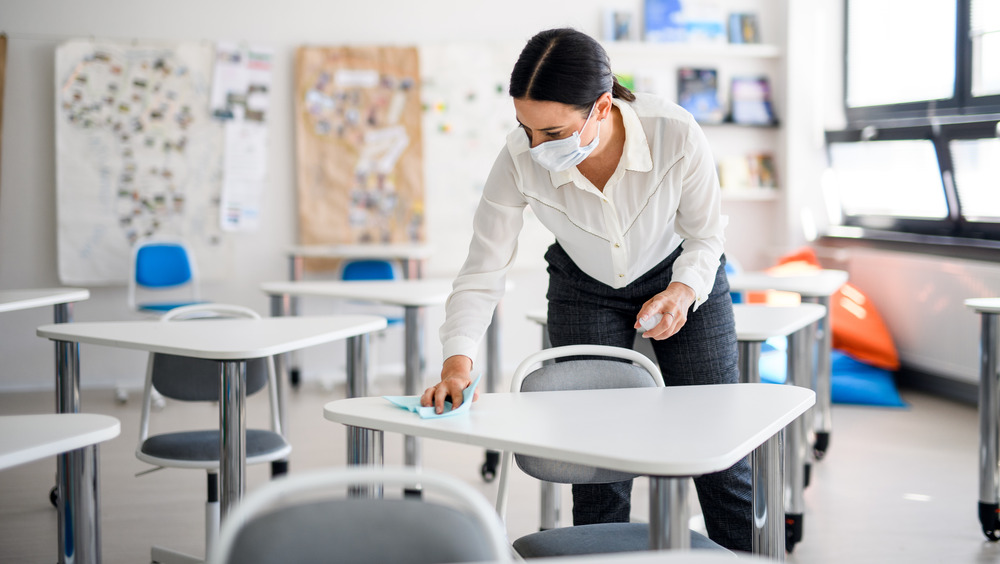You Probably Don't Need To Sanitize Everything For COVID Protection. Here's Why
At the start of the COVID-19 pandemic, consistent disinfecting of frequently touched surfaces was one of the most emphasized methods by health officials to safeguard against COVID-19 infection. Many took extra precautions by sanitizing a variety of items from groceries purchased at the store, to packages delivered in the mail. Throughout 2020, many stores found themselves routinely out of stock of cleaning supplies such as Lysol and disinfectant wipes. However, based on a recent announcement made by the Centers for Disease Control and Prevention (CDC), we might be able to dial back on the constant sanitizing.
In a recent update, representatives reminded citizens that warm water and soap is an effective means to rid our homes of most viruses and bacteria. When it comes to sanitizing, experts stated, "Disinfection to reduce transmission of COVID-19 at home is likely not needed unless someone in your home is sick or if someone who is positive for COVID-19 has been in your home within the last 24 hours." Therefore, while disinfecting is not a bad way to prevent the spread of germs in general, when it comes to the Coronavirus specifically, sanitizing is most advised in cases of known exposure in your home.
Sanitizing surfaces is encouraged when there has been known COVID-19 exposure in the home
If a family member within the household is particularly prone to illness and at higher risk of COVID-19 infection, regularly sanitizing surfaces is encouraged (via the CDC). Certain hot spots to pay attention to include light switches, door knobs, and other handles. To reduce the likelihood of contagion, experts advise encouraging guests who have not been vaccinated to utilize face masks when entering the home. Additionally, frequent hand washing is recommended when venturing outside of the household.
Experts continue to remind individuals that the most common means by which the virus is spread is through close contact with others when there's been an exchange of contaminated particles (via ABC News). Sanitizing is now recommended more so for populated indoor areas such as schools where risk of transfer through surfaces may be higher. And more specifically, when there has been a suspected or confirmed case of COVID-19 present within a 24 hour period.
Cleaning surfaces is an effective way of keeping ourselves healthy year round. Therefore, how often you clean should be based on your personal comfort level. Hopefully with these new CDC guidelines, people will feel more inclined to sanitize for peace of mind rather than anxiety or fear.


